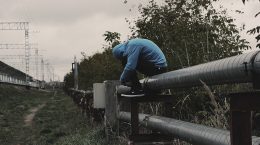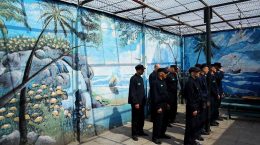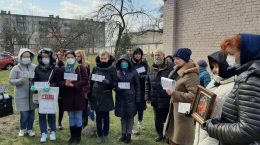On January 31, 2021, it became known about the detention in Orsha of three teenagers who worked for one of the online stores as pawners of drugs. An 18-year-old resident of the district centre and his two 16-year-old friends were interrogated on camera, and the video appeared on the social networks of the Ministry of Internal Affairs. The guys face up to 10 years in prison. This week, “Our House” once again raises the topic of children-328. The illegitimate government sentences them to huge terms. Even murderers don’t get 10 or 12 years of restriction. At the same time, the owners of online stores where the children worked remain at large. But Interior Ministry officials still deny the need to review punishments under Article 328. We recall what they said about Article 328 in the last two years.
Decree No. 6, which toughened the punishment for drug-related crimes, appeared in Belarus in 2014. After a series of enormous terms for boys and girls under 18 and even under 16 years, human rights activists recognized this punishment as too cruel. But the authorities were adamant – no concessions to either distributors or drug users. And only in the summer of 2019, the first thought appears: it seems that the stick was still overstepped, and the problem is not being solved.
In December 2019, while visiting BSMU, Alexander Lukashenko spoke about drug crime. He noted that judges should thoroughly investigate each situation and impose a punishment adequate to the circumstances of the criminal case. And Lukashenko also accused the 328 mothers of not raising their children enough. At the same time, he spoke about the amnesty: «I have instructed to reconsider the issue of pardoning some young people. Most guys are sitting, and there are few girls among them, only a few. Nevertheless, they were put behind bars because of the connivance of their parents.»
But the amnesty in the form in which it was expected did not appear. In April 2020, the Supreme Court submitted a draft amnesty law to the President. It was promised to revise the penalties for about 12 thousand convicts, including underage drug distributors. But the amnesty petitions were planned to be considered after guarantees from close relatives that they would control the children. As a result, only partial amnesty was applied to 328 children, reducing their sentence by one year — and only to those convicted under part 4 of Article 328. Minors serving sentences under parts 1, 2 and 3 of this article did not receive amnesty. Teenagers having violations (obtained for an unmade bed or an impolite response to the warden) also did not receive any preferences.
In 2020, Ekaterina Shelegova, Deputy Head of the Drug Control Department of the Main Directorate for Drug Control and Combating Human Trafficking of the Ministry of Internal Affairs, spoke about provisions of anti-drug Decree No. 6. She said that it tightened responsibility for actions related to drug trafficking: «The law has gone down the path of tougher penalties, but specifically for particularly serious compounds related to drug trafficking. If not for the measures taken in 2014, it is unknown how many young people we would have lost.» It remains only to ask how many young people have already been lost in prisons.
According to the Main Directorate for Drug Control and Combating Human Trafficking, from January to June 2021, about 100 people who study at secondary, specialized secondary and higher educational institutions were detained under article 328. Most of them have a particularly heavy composition, and this threatens with a penalty of 6 to 15 years in prison. And although much more blame, in this case, lies with the organizers of the criminal business, there is no question of mitigating punishments for teenagers — on the contrary, children receive huge sentences for their youthful maximalism, self-confidence, thirst for easy and fast money.
In August 2021, the head of the Department for Drug Control and combating Human Trafficking of the Department of Internal Affairs of the Mogilev Regional Executive Committee, Vladislav Kovalev, said that after the tightening of legislation, the situation with drug trafficking had stabilized. «It was not only the fear of severe punishment that affected. The work of all concerned departments and services has become comprehensive. But reports about those caught under Article 328 of the Criminal Code do not disappear from the reports. The main reason is the desire for easy money. Take the same online stores. Their offers are interesting for a teenager or a young person. And when it comes to the transportation of drugs across the border, the stakes increase significantly.»
On August 25, 2021, the First Deputy Minister of Internal Affairs, Major General Yuri Nazarenko, said that there was no need to soften the legislation on articles related to drug trafficking: «I am not a supporter of relaxing drug-related regulations. In some countries, the death penalty is provided for such crimes. We see an increase in the spread of drugs. That is, people understand: before 8, now 6, 5 and 3.»
Sergei Rachkov, Chairman of the Standing Committee of the Council of the Republic of the National Assembly of Belarus on International Affairs and National Security, also appeared in solidarity with him: «We have adopted a tough, but, I think, the right law to put a barrier to the spread of drugs. Young people, who pass under such articles, frequently receive ten or more years of imprisonment. Parents believe that this is an excessively harsh approach. However, the problem with the distribution of narcotic drugs is severe. We are monitoring the practice of applying this law – and we see a sharp reduction in acts in this area. Therefore, in our opinion, it is premature to weaken the effect of this law.»
In December 2021, the Chairman of the Council of the Republic, Natalia Kochanova, said that the country needs more aggressive preventive work to counter drug trafficking: «I think if we follow the path of softening legislation and responsibility for these offences, it will probably be wrong. A person under the influence of drugs is capable of anything. And we must clearly understand this.» But often, teenagers caught for drug distribution are not drug addicts. For them, dangerous substances are just a way of earning money and saving from material problems in the family.
The increase in the trend was also noted by the head of the Main Department for Drug Control and Combating Human Trafficking of the Ministry of Internal Affairs, Oleg Silvestrovich. «The analysis conducted by the Ministry of Internal Affairs indicates that in January-October of this year, the number of minors who committed crimes in this area tends to increase significantly. Most of them committed a crime related to the sale of drugs as part of an organized criminal group. There are recent examples of young people from 14 to 18 years who sell drugs. Despite the extensive information campaign on drug trafficking prevention.» Already from these words, it can be concluded that there can be no mitigation of punishment for children-328.
On January 31, 2022, the head of the Department of Internal Affairs of the Vitebsk Regional Executive Committee, Andrei Lyubimov, noted that the fault lies not only with the teenage distributors: «At the beginning of this year, three teenagers were already detained. All born in 2005, college students. Guys, as a rule, are used for making bookmarks. Sadly, teenagers are irresponsible about their fate. Many do not realize the gravity of the crime and the serious retribution that threatens them. And the responsibility under article 328 is very high.»
From the above statements, it will not be difficult to conclude that children will continue to get terms for drug-related offences. Young Belarusians will continue to be deprived of youth, health, and the opportunity to study. And after prison, adult men and women will not know how to live in society and, most likely, will go back. In this way, the state solves problems with free labour. Is it fair? We are sure that our children deserve the best.







